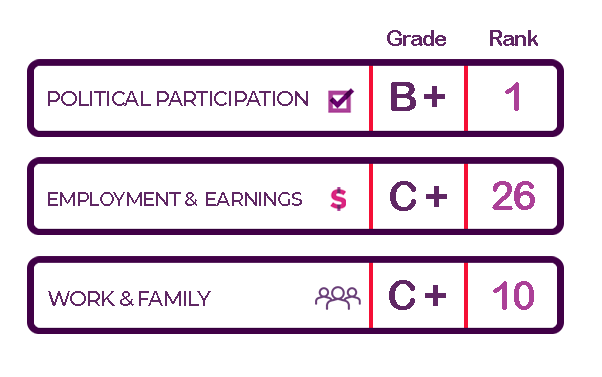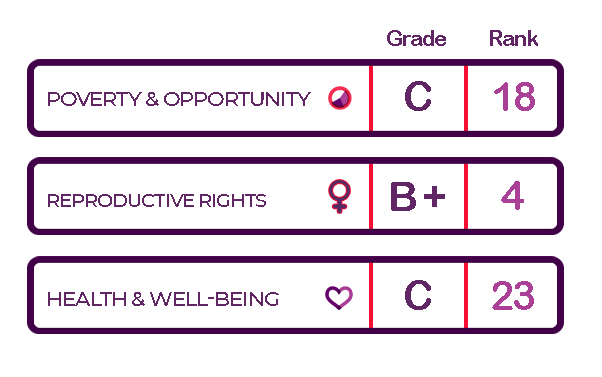
The Status of Women in the States project ranks and grades Maine across several areas of women’s lives. While Maine performs better in some areas, no matter the rank, there are still barriers and inequities that prevent women from succeeding and thriving. Across all indices, Maine ranks toward the top of states in the country. Maines’s performance is the strongest on the Political Participation and Reproductive Rights indices. Maines’s performance is weakest on the Employment and Earnings and the Health and Well-Being indices.


Explore the Data
As state policies and programs have changed over the years, so has the status of women in Maine. Since 1996, Maine has made progress in some areas, while lagging in others.
Articles and Publications
The Well-Being of Women in Utah in 2018
As of 2016, women in Utah still work outside of the home at similar rates to women nationally and—while not yet at the same levels as U.S. women—they also continue to pursue business ownership, make progress in educational attainment, and overcome some aspects of poverty.
The Shifting Supply and Demand of Care Work: The Growing Role of People of Color and Immigrants
As the Baby Boom generation matures and current unmet child care needs remain constant, the United States faces a burgeoning crisis in the demand for care workers. The market has slowly but surely begun to adapt, seeing an overall growth of 19 percent in the number of care workers between 2005 and 2015, with most of that growth in adult care. The U.S. Department of Labor suggests that this will only grow further, projecting that the economy will add more than 1.6 million jobs in occupations related to adult care by 2024 (Rolen 2017).
The Need to Promote Gender Diversity in Entrepreneurship, Innovation, and Patenting: Written Testimony Submitted to the House Small Business Committee
IWPR’s research finds that women patent inventions at much lower rates than men, which means that potential innovations to improve technology, treat illness, and improve everyday life are being left on the table.




